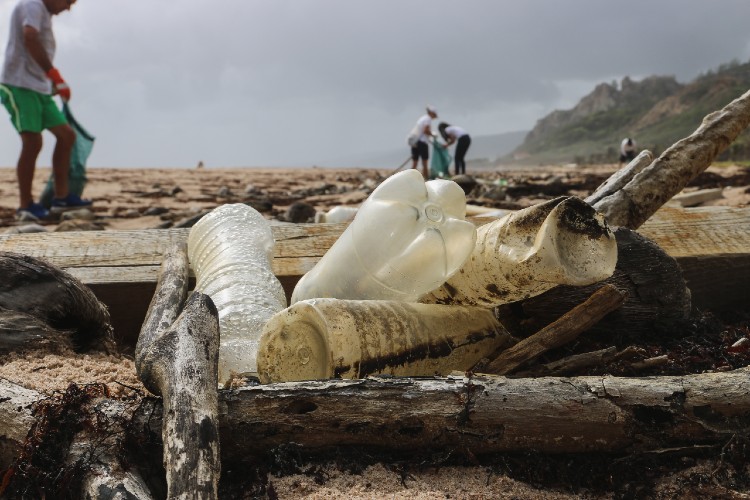
Is living more sustainably what we should aspire to?
As a concerned citizen of the world, I started to look at the impact plastic was having on our environment. My personal journey of discovery made me reflect on how we evolved to the capitalist society that exists today.
Our impact started in the industrial revolution with the use of coal but it was only 70 years ago that our world shifted. Since the early 50s, we’ve had scaled manufacturing and media which created opportunities on a mass scale. Television channelled advertising messages that told us how we should live and what products to buy.
At its very heart, our economic model is reliant on consumption for growth. Jobs exist so we can buy goods and services. Businesses pay taxes and the government redistributes funds back into the community. The economics meant that single-use became the most efficient means to maximise profit. Businesses created products we didn’t know we needed. They found a way to protect goods during the transportation process and became heavily reliant on a cheap fossil fuel by-product called plastic. As it turns out, plastic is one of the worst man-made inventions of all time. Why? Plastic is estimated to take 500 years to break down. There is no greater evidence of a broken economic system than the stockpiles of rubbish that can’t degrade.
Our increasingly globally connected lives should give us all concern. In poorer countries lacking robust waste disposal systems, a sea of plastic exists. We don’t see the impact that plastic waste has on our oceans. But there is growing evidence that plastic has entered our food system through the food we eat. Only time can tell us what that means for our health.
Why government subsidies are bad for everyone
Government subsidies create an artificial environment for businesses to operate. Those that appear to benefit the most are those who are the main polluters of carbon emissions. Artificial subsidies only have contributed to a lack of reform. This is to the detriment of innovation and progress. But there are those countries that have invested in renewable energy. The economic benefit of transitioning to renewable energy is hard to argue against. As the cost of renewable energy falls, countries that don’t transition will pay higher costs for their energy needs. This will be to the detriment of businesses and consumers who will pay higher prices. The usage of fossil fuels will also continue to have a negative impact on our climate. The biggest test for humanity is in agreeing on how we save our planet.
The rise of the conscious consumer
What is emerging is a new customer segment called the conscious consumer. They are applying pressure is on businesses to be transparent about their carbon emission contributions. Consumers do not want their consumption to be at the expense of personal or planetary health. What has emerged is an opportunity for businesses to be more environmentally aware. Greater investment in product design and management of supply chains will only continue.
Remember why businesses exist
The impact of climate change will place a greater moral and ethical dilemma on institutions that will need to decide whether to remove themselves from the consequences. These institutions were formed to provide support to help a community thrive. If the very foundation of how people live is being challenged, it is up to these institutions and businesses to address years of inaction. At its core, alignment with community values as well as imposing its own value system on its core proposition is critical to adapting for future customer needs.
How can we change our lifestyles to live more sustainably?
We all share the responsibility to be live more sustainably. As consumers, we buy products even when we don’t need them. As we become environmentally and socially aware, pressure will be on businesses to change their offerings. We can support those businesses transitioning. Buy sustainably sourced products, avoid single-use, and source energy that is renewable. Search for companies that have a policy that eliminates unnecessary plastics and has a reusable packaging solution.
The shifting economic model requires a fundamental rethink of the way we make, consume and distribute goods and services. This opportunity allows for changes to be made within the existing ecosystems. We have time to leverage incremental innovation. But only just. Change is upon us, no matter which way you look at it. You have to decide if you make this change now or when it might be too late.



